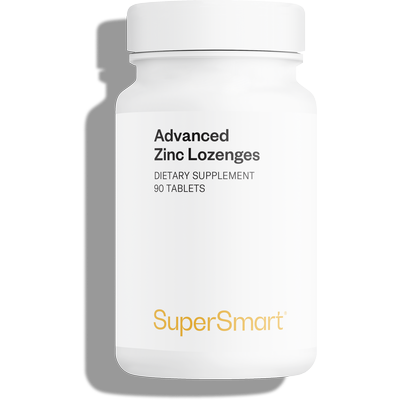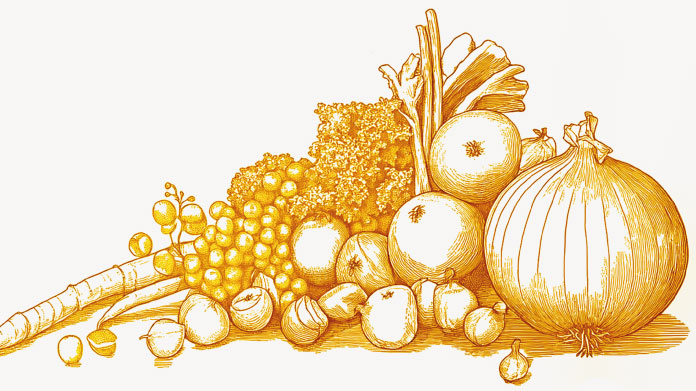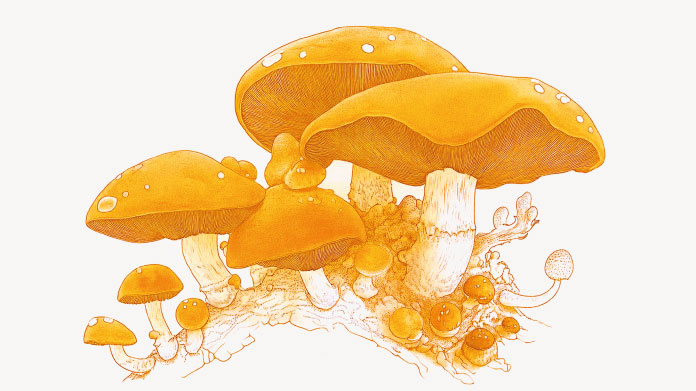
Role of zinc in immunity
A mineral that’s essential for good health, zinc supports normal immune system function, in particular (1-5).
In addition, this trace-element plays a role in synthesising DNA and proteins, protecting cells against oxidative stress, and maintaining healthy skin, hair, nails and bones...
So without further ado, here are the 10 best dietary sources of zinc.
10) Unsweetened cocoa powder
At no. 10, unsweetened cocoa powder contains a good level of zinc. Anyone for a cup of hot chocolate?
There’s around 6.9 mg of zinc in 100g of unsweetened cocoa powder.
9) Morbier cheese
Certain cheeses are also important sources of zinc, one of which is morbier, a cow’s milk cheese that comes from the Jura mountains.
100g of morbier contains around 7mg of zinc.
8) Lobster
Seafood in general contains a lot of zinc. Perhaps you’re a fan of the delicious shellfish lobster?
If so, you’ll be getting 7.3mg of zinc for every 100g of lobster.
7) Vacherin Mont-d'Or
At no. 7 is another cheese: Mont-d'Or, a runny cheese from the same region as morbier.
There’s around 8mg of zinc in 100g of Vacherin Mont-d'Or.
6) Steamed or boiled crab
Back to seafood now, with another edible crustacean, this time crab, which has a significant amount of this trace-element.
100g of crab contains around 8mg of zinc.
5) Maroilles
From northern France, maroilles is a soft cheese famous for its strong taste and smell. It’s the cheese with the highest zinc content.
There’s around 9 mg of zinc in 100g of maroilles.
4) Rye and wheat bread
Another good source is rye and wheat bread. In fact, this rustic bread is generally a healthier, more nourishing option than standard wheat bread.
You’ll find around 10mg of zinc in every 100g of rye and wheat bread.
3) Beef stew or braised beef
Meat is an excellent source of zinc. Try a traditional beef stew with carrots, potatoes and leeks, or braised beef cooked slowly in a casserole. Cooked beef is among the foods with the highest content of zinc ... and protein.
There’s around 10.5mg of zinc in 100g of stewed or braised beef.
2) Calves’ liver – raw, sautéd or braised
Offal is an important source of zinc. You could opt for raw calves’ liver, marinated in olive oil, or calves’ liver cooked with mushrooms, served with pasta shells.
There’s around 13.2 mg of zinc in 100g of raw, sautéd or braised calves’ liver.
1) Oysters, raw or steamed
And the undisputed champion of the zinc-rich foods is the oyster. These marine molluscs which live in salty water, clustering on pieces of rock, contain record levels of zinc (6).
There is thus around 21.3mg of zinc in 100g of oysters.
And what about good plant sources of zinc?
As you’ll have noticed from this list, the highest levels of zinc are found in products of animal origin (seafood, offal, meat and cheese). What’s more, the zinc from these foods is generally better absorbed by the body.
There are, however, plant sources of zinc, such as:
- nuts ;
- whole grains;
- and dried pulses (7).
How can I significantly increase my zinc intake?
To improve your intake of zinc, start by eating more of the above-mentioned foods. You also have the option of taking a zinc supplement.
Be aware that there are several types of zinc supplement available:
- the familiar and very popular zinc lozenges, (try, for example, the product Advanced Zinc Lozenges) ;
- capsules of zinc orotate, a form of zinc bound to an organic substance so that it reaches the bloodstream more easily (Zinc Orotate) ;
- tablets that combine zinc with the amino acid L-methionine, which offer enhanced retention (such as L-OptiZinc®) ;
- you could also opt for a multivitamin supplement which provides other minerals in addition to zinc, plus multiple vitamins (try Daily 3) ;
- and finally, there are synergistic formulations that combine zinc with plant extracts(such as Immunity Booster, rich in zinc and echinacea, a medicinal super-plant that supports the body’s defence systems).
References
- EU register of nutrition and health claims made on foods (v.3.5)
- Wessels I, Maywald M, Rink L. Zinc as a Gatekeeper of Immune Function. Nutrients. 2017;9(12):1286. Published 2017 Nov 25. doi:10.3390/nu9121286
- Kurugöl Z, Akilli M, Bayram N, Koturoglu G. The prophylactic and therapeutic effectiveness of zinc sulphate on common cold in children. Acta Paediatr. 2006 Oct;95(10):1175-81. doi: 10.1080/08035250600603024. PMID: 16982486.
- Srivastava V, Rawall S, Vijayan VK, Khanna M. Influenza a virus induced apoptosis: inhibition of DNA laddering & caspase-3 activity by zinc supplementation in cultured HeLa cells. Indian J Med Res. 2009 May;129(5):579-86. PMID: 19675388.
- Hemilä H, Chalker E. The effectiveness of high dose zinc acetate lozenges on various common cold symptoms: a meta-analysis. BMC Fam Pract. 2015 Feb 25;16:24. doi: 10.1186/s12875-015-0237-6. PMID: 25888289; PMCID: PMC4359576.
- Rangan AM, Samman S. Zinc intake and its dietary sources: results of the 2007 Australian National Children's Nutrition and Physical Activity Survey. Nutrients. 2012;4(7):611-624. doi:10.3390/nu4070611
- Saunders AV, Craig WJ, Baines SK. Zinc and vegetarian diets. Med J Aust. 2013 Aug 19;199(S4):S17-21. doi: 10.5694/mja11.11493. PMID: 25369924.




